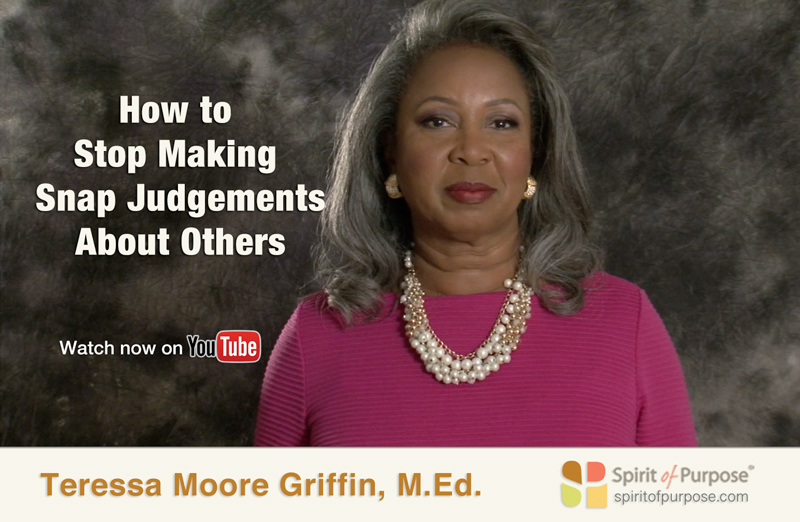VIDEO: How To Stop Jumping To Conclusions
Undo Your Brain’s Natural Tendency to Make Snap Judgments
Science now confirms that you only get one chance to make a first impression. That impression takes hold more quickly than you might think. Psychologist and neuroscientist Dr. Bastian Schiller and researchers in Switzerland have discovered that subconsciously, we decide within milliseconds who or what we like or don’t like.
Using Implicit Association Tests, or IATs, that measure a person’s automatic association with concepts, objects or social constructs, they analyzed brain activity in soccer fans. They observed study participants while processing positive and negative information about members of their favorite or opposing teams. In some cases, the steps to judgment happened in a few milliseconds.
The implications from this study are vast. When we meet new people or face new situations, making snap judgments can be detrimental to how we treat and think about their capabilities. Although our brains are wired to make snap judgments based on stored knowledge, it’s critical to remember that we also have the capacity to step back and gather more information before we form an opinion. Consciously choosing to slow down our reaction allows us to make more informed decisions.
You Can Train Your Brain
It takes some training to tap in to our ability to make conscious choices. Our brain processes our reactions so quickly that it’s hardly noticeable. Understanding how our brains work and our own capacity to choose differently is a critical first step toward making the necessary adjustments.
We are all victims of instantaneous judgments. We are also guilty of making them ourselves. To better understand your hidden reactions to people of different types, visit my website, Spiritofpurpose.com for a link to Harvard’s online Implicit Assumption Test. Your can test your reaction to ethnicity and skin tone, gender or weight and more. It will help you shed light on underlying assumptions that influence your responses to different types of people.


